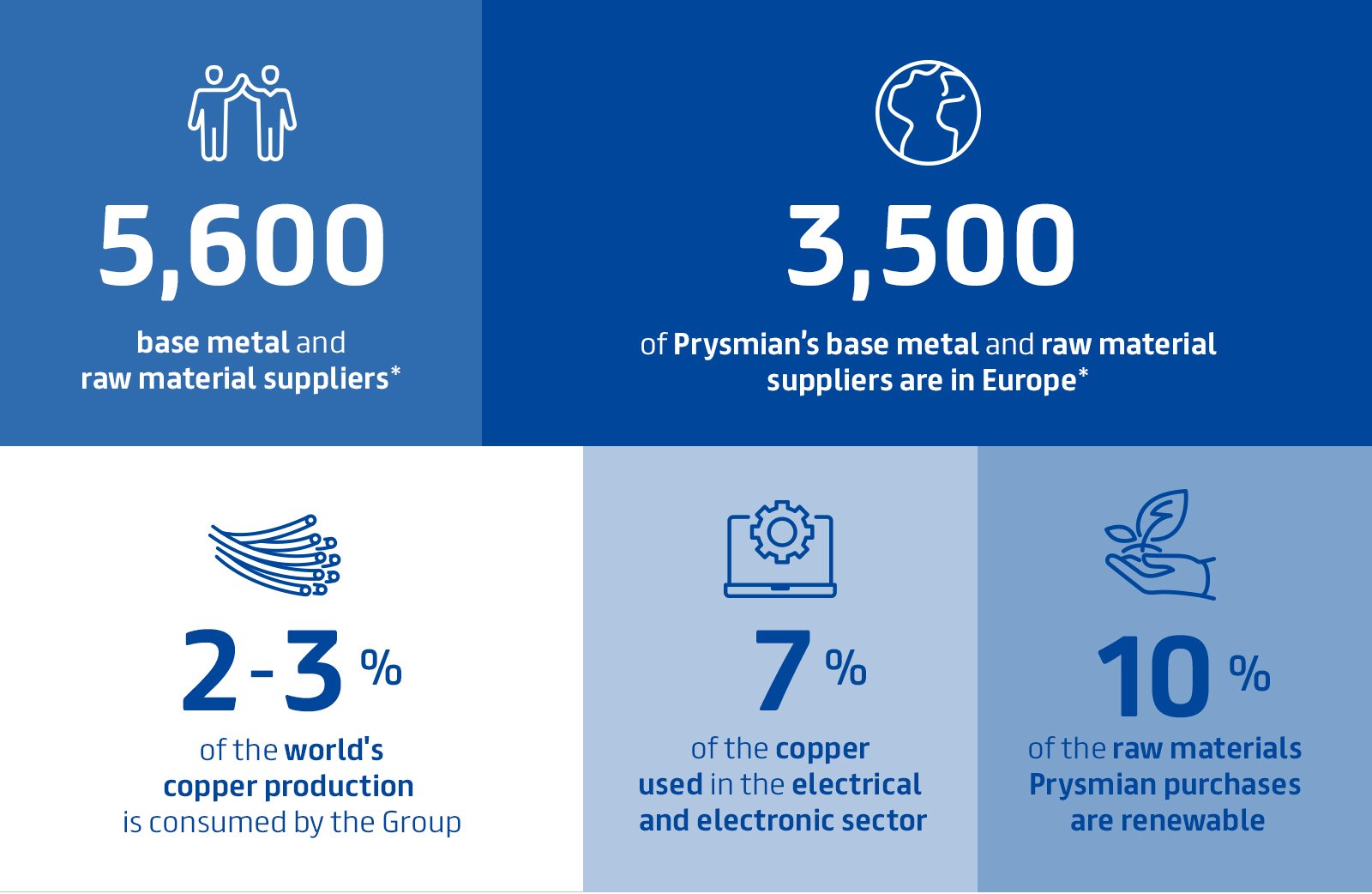For Prysmian to achieve its sustainability goals, it must have a sustainable supply chain. The company has set targets to reduce its own greenhouse gas emissions by 15% and recycle 40% of waste by 2020, and suppliers are part of this effort.
To achieve a sustainable supply chain, Prysmian is guided by several principles. The first is assessment: the supplier qualification process starts by having the supplier respond to a questionnaire on a number of issues, including ESG criteria. Risk Analysis is another important principle that Prysmian applies to its most critical suppliers to measure them in terms of sustainability criteria. The Group is committed to using only those raw materials that pass quality tests including environmental and social aspects.
Performance management helps strengthen its sustainability commitment. Prysmian conducts a supplier performance review. In 2017, the group began a vendor mapping effort that asked 100% of base metals recurring suppliers to make detailed self-assessments on principal factors impacting sustainability: integrity, workers’ rights, and the environment. Replies were analyzed by a third party, and the results of the evaluation were discussed by Prysmian with the suppliers.
In addition, by 2020 Prysmian aims to have carried out 20 audits on raw materials suppliers based on risks in the supply chain.
Prysmian carries out its sustainable supply chain strategy through three macro-activities.
- Suppliers for recurring and strategic materials/services must subscribe to the Code of Ethics. We have defined a Conflict Minerals Policy document with the aim of guaranteeing a "Conflict Minerals free" supply chain. Our Human Rights policy has been extended with a specific chapter on the monitoring and identification of potential breaches in the supply chain, with remedial actions and, if necessary, the exclusion from all commercial and business relations of suppliers that do not respond promptly to the standards required.
- The current supply chain of raw materials is assessed by a Sustainability Desk Analysis, Risk Analysis and self-assessment.
- Progress is monitored with a view to achieving the goals in the “Sustainability Scorecard”.







